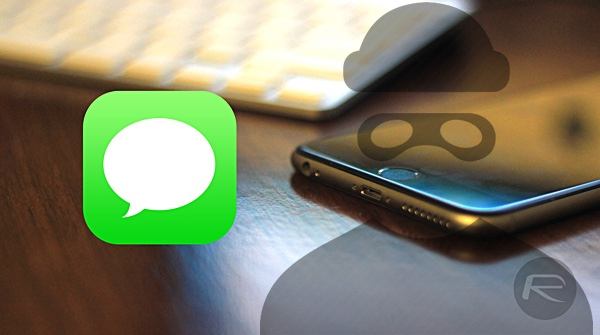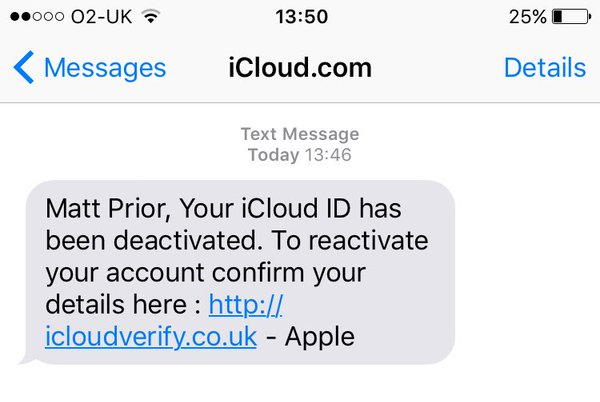iPhone owners in the United Kingdom need to be aware of a menacing scam text message that is starting to infiltrate a growing number of devices. This latest phishing scam is being distributed through a text messaging network, and looks to take advantage of trusting and otherwise unaware iPhone users as part of an effort to extract their Apple account credentials from them. The content contained within the message, and the distribution route chosen by the perpetrators, is extremely similar to another scam that came into the public domain last month requesting Apple ID account details.
This time around, rather than try to convince the user that an Apple ID is “about to expire”, this latest scam goes a step further to try and scare the receiver into action by informing them outright that their iCloud ID has actually been deactivated.

The text message then provides a URL for the user which requests an ID and password to be entered to “confirm” the account. The fact that the message is actually personalized with the receivers name adds an air of believability to the whole scam.
Matt Prior, an England cricketer, is amongst those who have received the message in the United Kingdom, subsequently attempting to confirm its authenticity via Twitter, only to be responded by @AppleSupport stating that this is indeed a phishing scam.
Matt Prior, Your iCloud ID has been deactivated. To reactivate your account confirm your details here: icloudverify.co.uk – Apple.

Of course, anyone well versed within these matters will instantly understand that tapping on the embedded link would redirect you to a fake Apple login page designed to send the entered Apple ID and password back to a remote server. The malicious individuals involved would then either sell those account details to an unscrupulous buyer, or use the account information themselves in a malicious manner. With that said, on first glance it could be deemed to be genuine, and has therefore probably caught quite a few people out.
Apple has previously published support pages warning against the dangers of scams of this nature. The Cupertino-based company – like any other company for that matter – will never issue text messages or emails requesting full account details to be issued by reply, and advises that “most often” attachments and non-Apple links in correspondence are “malicious and should not be opened”. If you receive this message, delete it instantly and do not tap the link.
(Source: @MattPrior13 [Twitter])
You may also like to check out:
- Download iOS 9.3.1 For iPhone And iPad [Direct IPSW Links]
- Jailbreak iOS 9.3.1 / 9.3 Status Update
- iOS 10 Beta Download, Release Date, Features And Rumors Update
You can follow us on Twitter, add us to your circle on Google+ or like our Facebook page to keep yourself updated on all the latest from Microsoft, Google, Apple and the Web.

